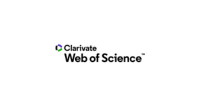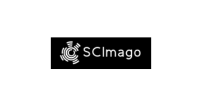INBREEDING DEPRESSION AND GENETIC VARIABILITY IN NELLORE BREED
DOI:
https://doi.org/10.5380/avs.v24i3.62841Palavras-chave:
Bos taurus indicus. Genetic diversity. Pedigree analysis. Population structure. Weights.Resumo
Inbreeding depression is caused by breeding between closely related
individuals and can have a significant negative impact on cattle production. It can be estimated at the population level using pedigree analysis or molecular markers. Such estimations can then be used to better manage the genetic resources of herds. The objective of this study was to evaluate genetic variability and the influence of inbreeding depression on productive traits in 45 785 animals Nellore cattle (polled variety) from Brazil. Inbreeding depression was determined by fitting four regression models (linear, quadratic, exponential and Michaelis-Menten) to the errors generated by the animal model. The traits studied were weight at 205 (W205), 365 (W365) and 550 (W550) days of age. The effective number of founders (fe) and ancestors (fa) was 288 and 283, respectively, with 173 ancestors explaining 50% of the genetic variability in the population. Inbreeding depression effects were identified on all growth traits (W205, W365, and W550), demonstrating significant losses in evaluated weight means. For each 1% increase in inbreeding there was a depression of about 0.14% or 0.24 kg (W205), 0.12% or 0.29 kg (W365) and 0.09%
or 0.29 kg (W550). Exponential and Michaelis-Menten models were similarly efficient predictors for all the traits (P<0.01). We conclude that Nellore cattle in Northeastern Brazil presents low genetic variation and the relationship between inbreeding and depressed productivity in this breed is not linear, with the greatest effects occurring when endogamy is above 20%. To change this scenario, it is important to use a high number of male breeders, mainly young individuals of high breeding value, and improvement of reproductive indexes of females. To achieve this goal, a traditional mating system focused on the utilization of a few (and famous) male breeders should be avoided by both farmers and technicians.
Downloads
Publicado
Como Citar
Edição
Seção
Licença
Autores que publicam nesta revista concordam com os seguintes termos:
- Autores mantém os direitos autorais e concedem à revista o direito de primeira publicação, com o trabalho simultaneamente licenciado sob a Creative Commons - Atribuição 4.0 Internacional que permite o compartilhamento do trabalho com reconhecimento da autoria e publicação inicial nesta revista.
- Autores têm autorização para assumir contratos adicionais separadamente, para distribuição não-exclusiva da versão do trabalho publicada nesta revista (ex.: publicar em repositório institucional ou como capítulo de livro), com reconhecimento de autoria e publicação inicial nesta revista.
- Autores têm permissão e são estimulados a publicar e distribuir seu trabalho online (ex.: em repositórios institucionais ou na sua página pessoal) a qualquer ponto antes ou durante o processo editorial, já que isso pode gerar alterações produtivas, bem como aumentar o impacto e a citação do trabalho publicado.













